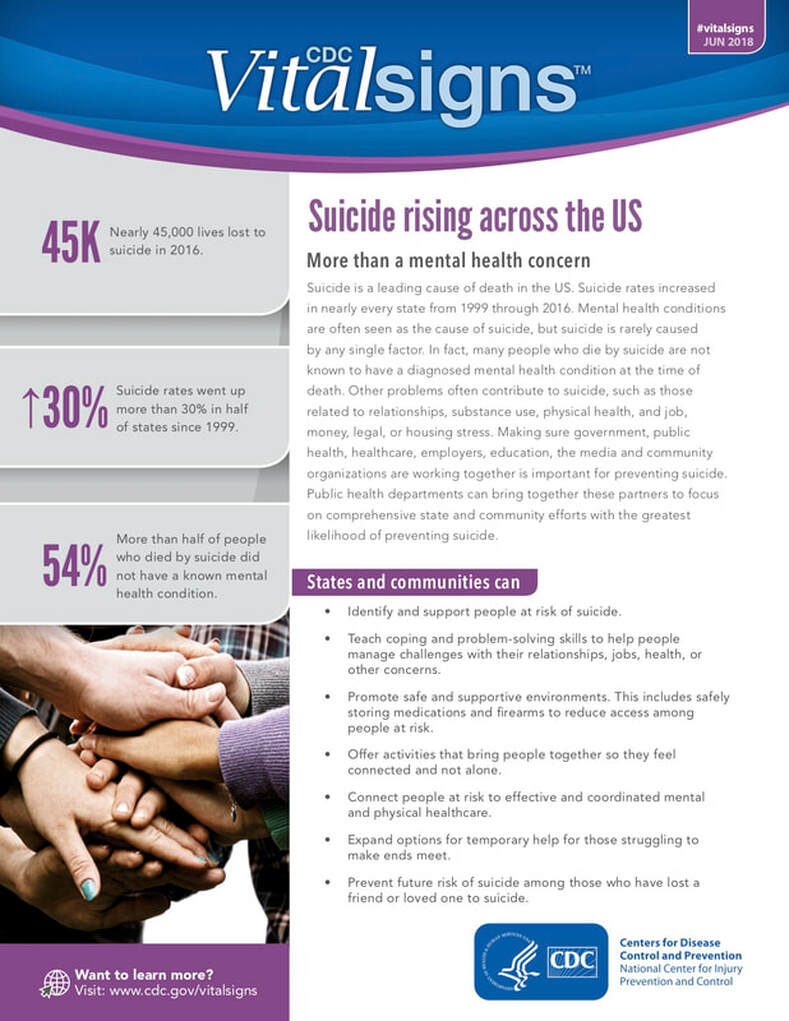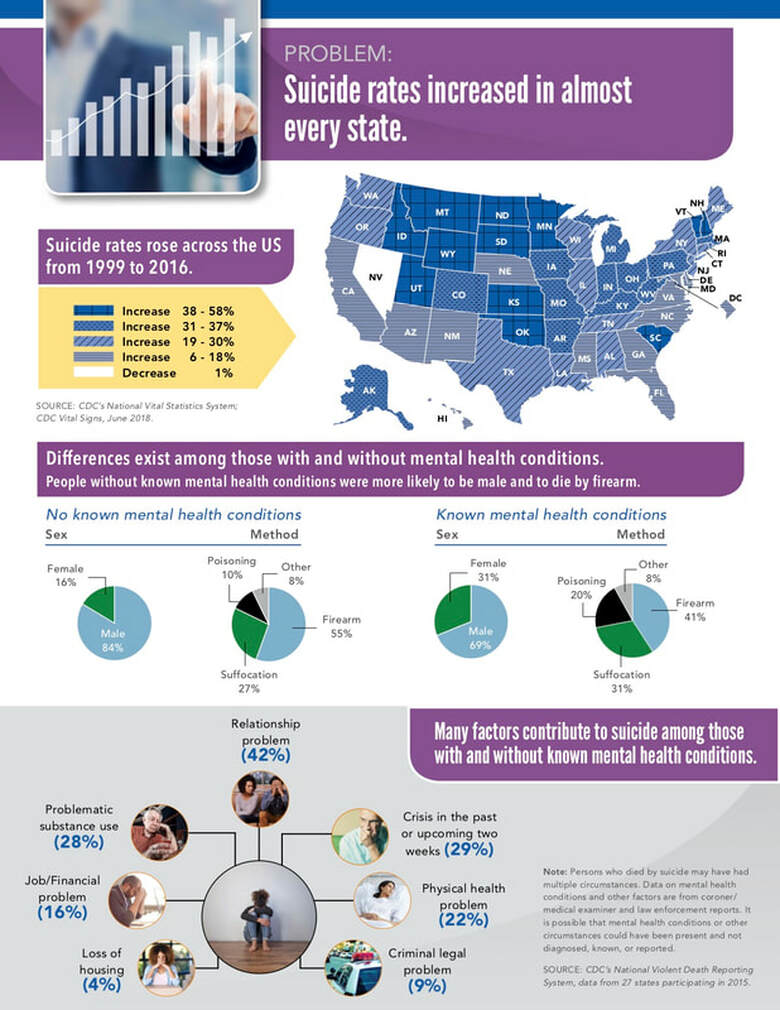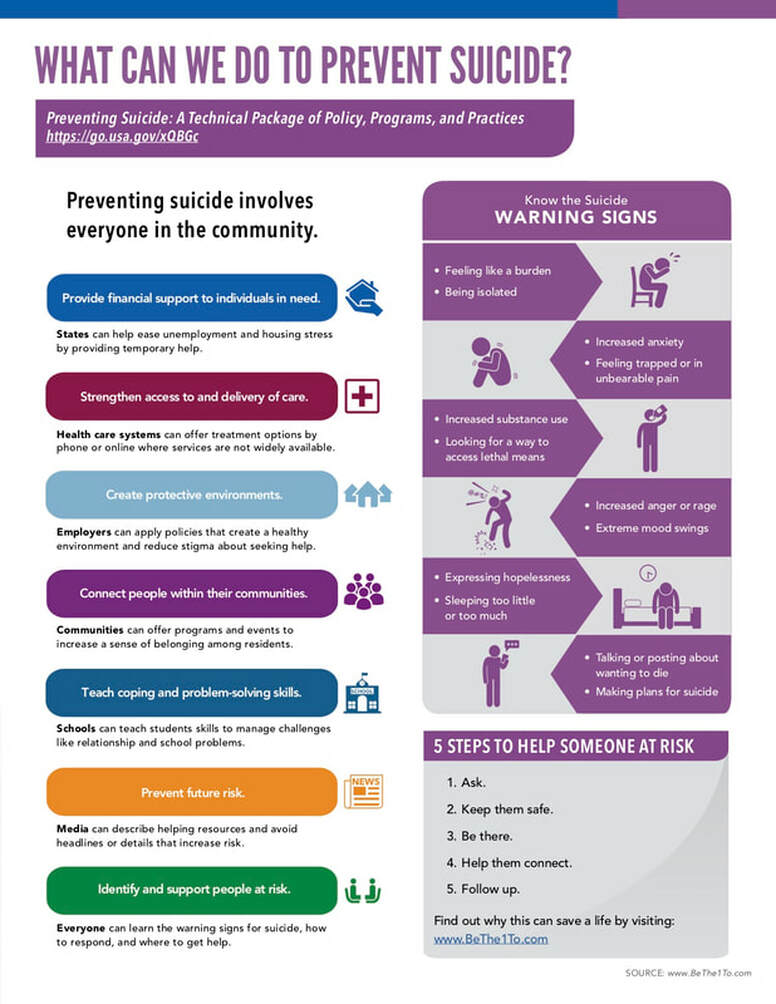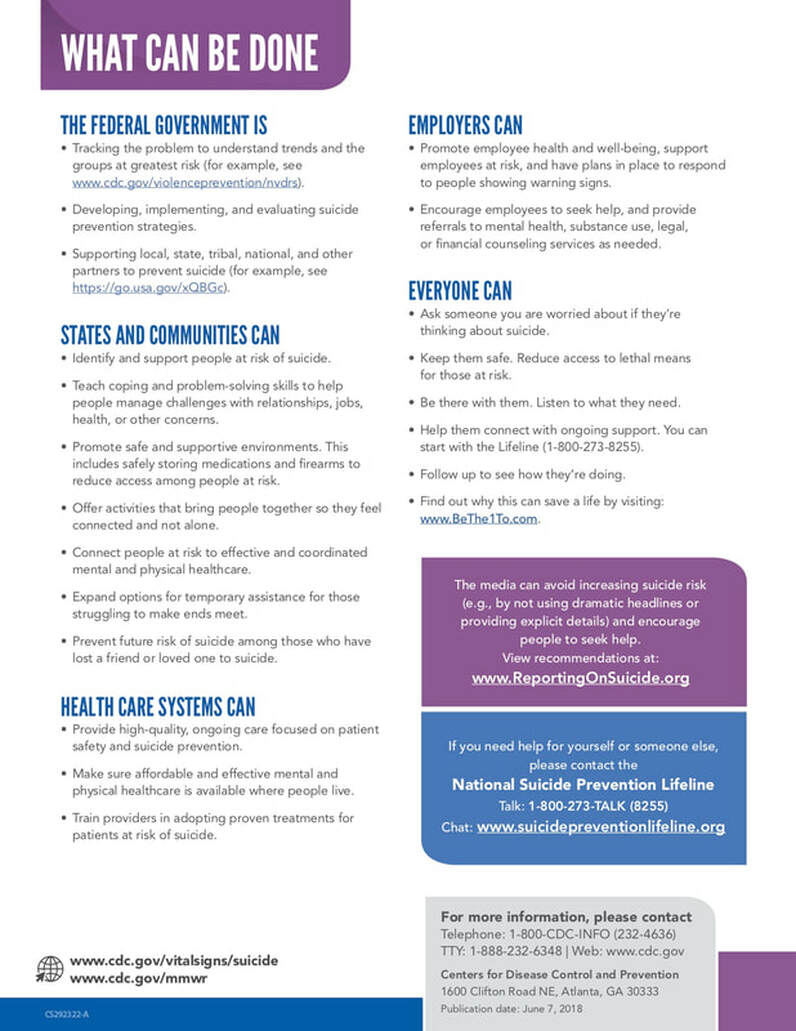~ Suicide ~
Suicide is generally defined as the act of intentionally ending one's own life. I have quite a bit of difficulty with the assumptive nature of intentional as it implies choice, and in fact, there is present and emerging cutting-edge neuroscience to suggest we need to take a closer look at and perhaps challenge our current understanding of this very important and consequential issue.
Let's start with what we know... *
There ARE warning signs. Listen to what is being said, watch for certain behaviors, and pay attention to a person's mood.
These are some of those signs...
If a person talks about:
Specific things to look out for include:
People who are considering suicide often display one or more of the following moods:
* Information courtesy of The American Foundation for Suicide Prevention { http://afsp.org }, The United States Department of Defense
{https://defense.gov}, and the Unites States Veteran's Administration {https://www.va.gov}. All statistics based upon the latest (2016) data.
Let's start with what we know... *
- 44,193 Americans commit suicide every year according to the most recent statistics
- For every suicide there are another 25 persons who attempt it
- 20 Americans Veterans suicide each and every day
- Of all branches of the US Armed Forces, the Army has the highest suicide toll particularly among the infantry and special ops, at a rate of 23.8 suicides per every 100,000 soldiers. The Air Force and the Navy have the lowest rate of suicide with approximately 16.3 suicides per 100,000 sailors, and just over 10 suicides per 100,00 Airmen. The National Guard and Reserves were showing the greatest reduction of suicides but still had a rate of 19.4 and 21.9 suicides per 100,00 soldiers. Just below the Army, Marines hold the 2nd largest rate of suicides per year.
- Although men commit suicide in larger numbers then their female counterparts, women attempt suicide 3 times more often then men, and female Veterans suicide 2-5 times more often then civilian women.
- Since 1999, suicides have been increasing at a significant rate each year.
- Although a relatively small percentage comparatively, the group of young girls between the ages of 10 and 14 have shown the largest jump per year, currently at a rate of 1.7 per 100,000 young girls.
- Beginning in 2007, the suicide rate for all American children aged 10-14 rose dramatically and then in 2014 it doubled.
There ARE warning signs. Listen to what is being said, watch for certain behaviors, and pay attention to a person's mood.
These are some of those signs...
If a person talks about:
- Being a burden to others
- Feeling trapped
- Experiencing unbearable pain
- Having no reason to live
- Killing themselves
Specific things to look out for include:
- Increased use of alcohol or drugs
- Looking for a way to kill themselves, such as searching online for materials or means
- Acting recklessly
- Withdrawing from activities
- Isolating from family and friends
- Sleeping too much or too little
- Visiting or calling people to say goodbye
- Giving away prized possessions
- Aggression
People who are considering suicide often display one or more of the following moods:
- Depression
- Loss of interest
- Rage
- Irritability
- Humiliation
- Anxiety
* Information courtesy of The American Foundation for Suicide Prevention { http://afsp.org }, The United States Department of Defense
{https://defense.gov}, and the Unites States Veteran's Administration {https://www.va.gov}. All statistics based upon the latest (2016) data.





